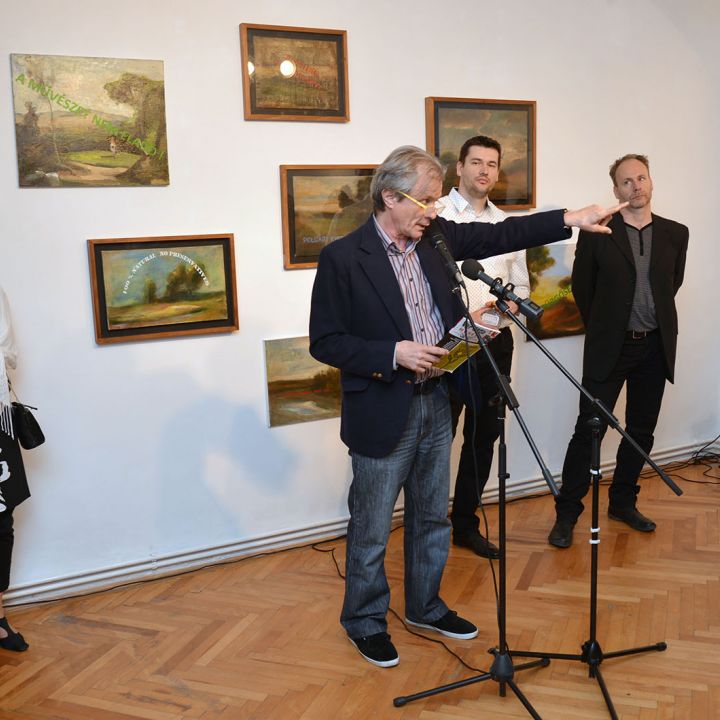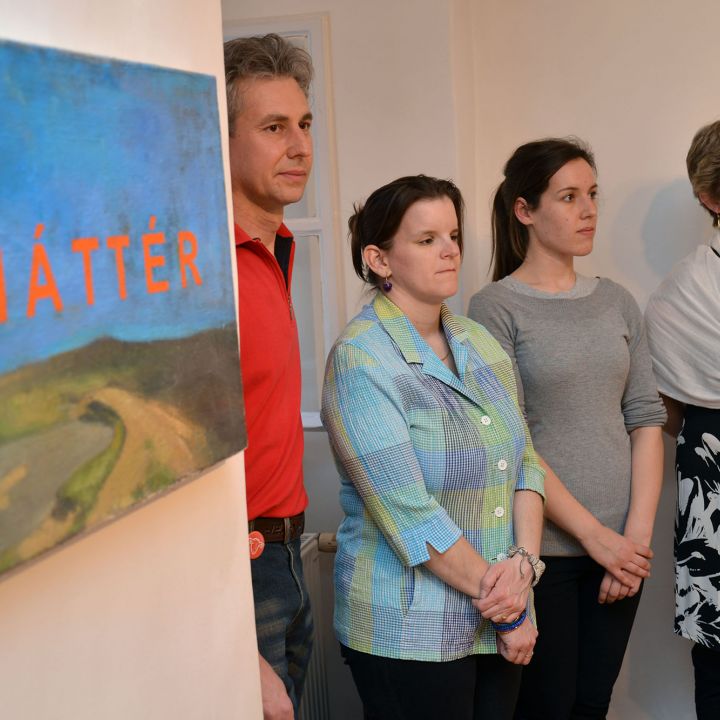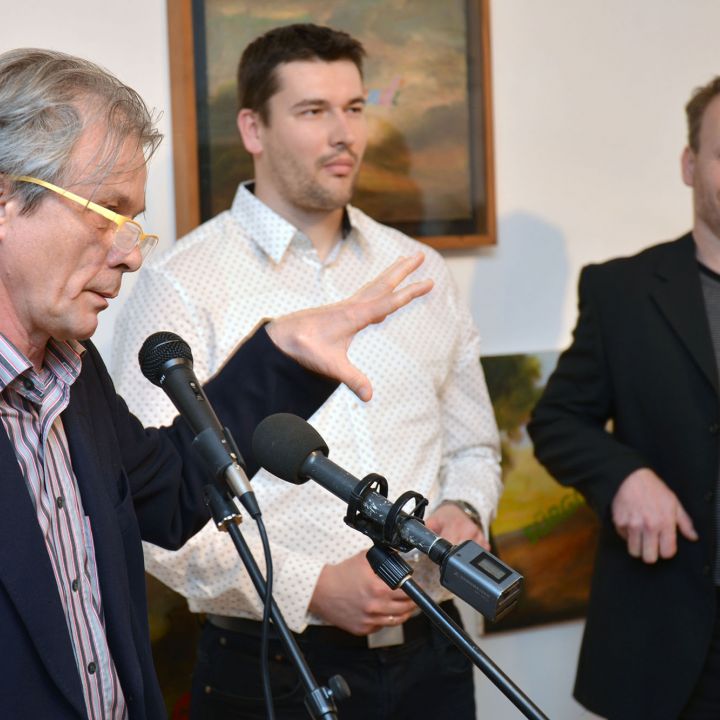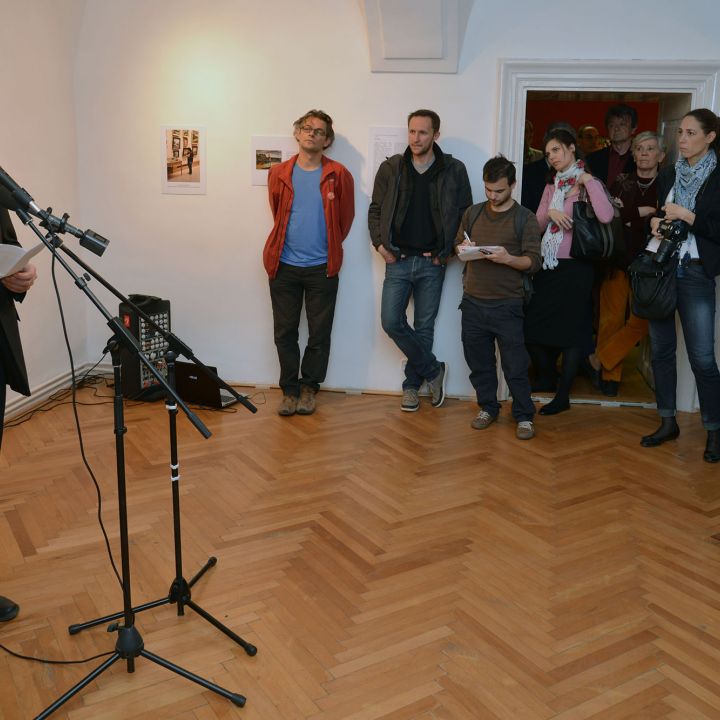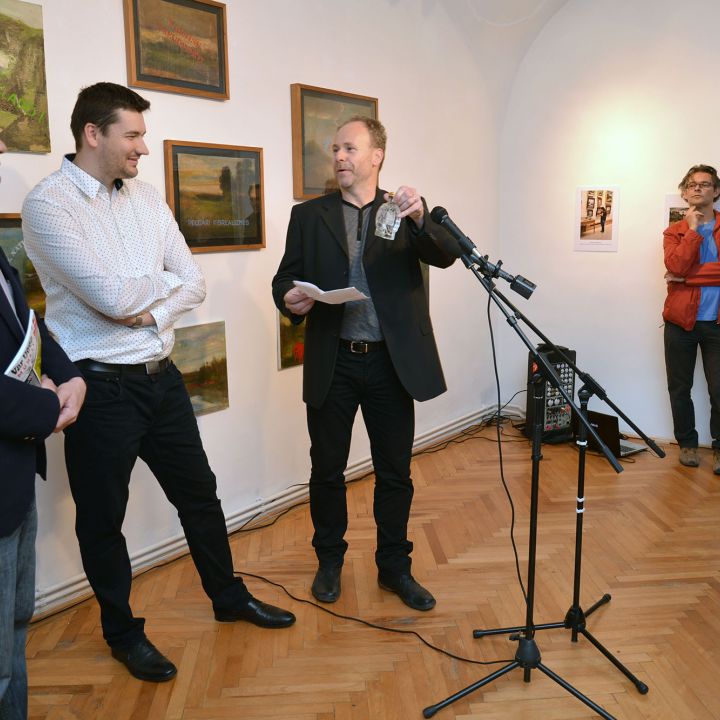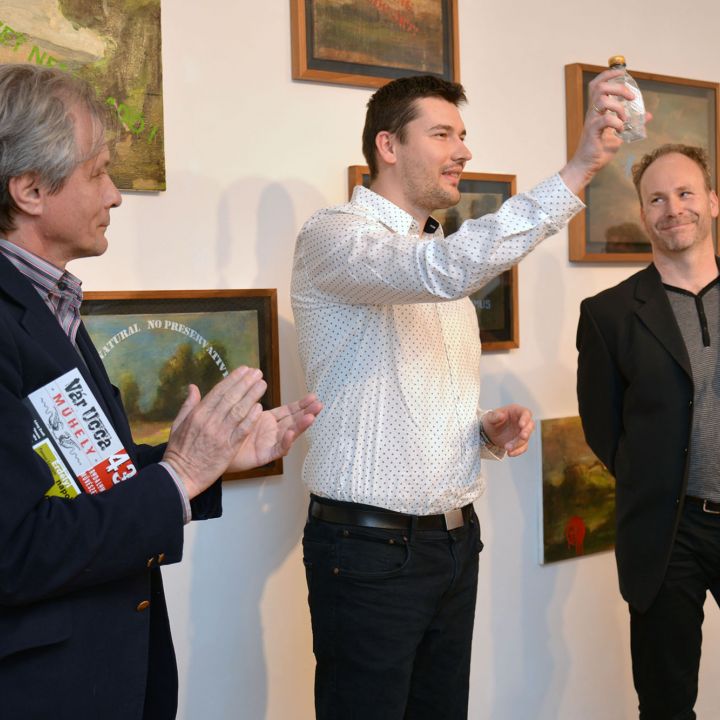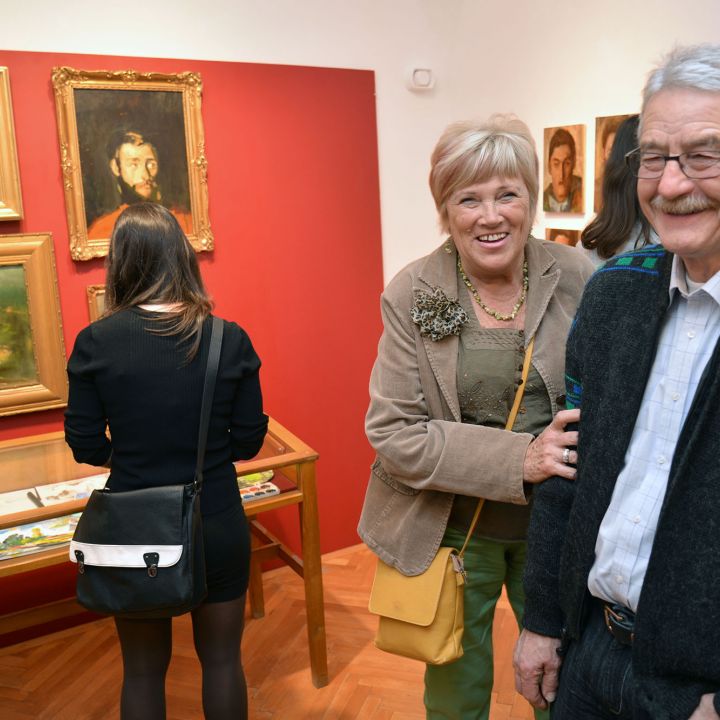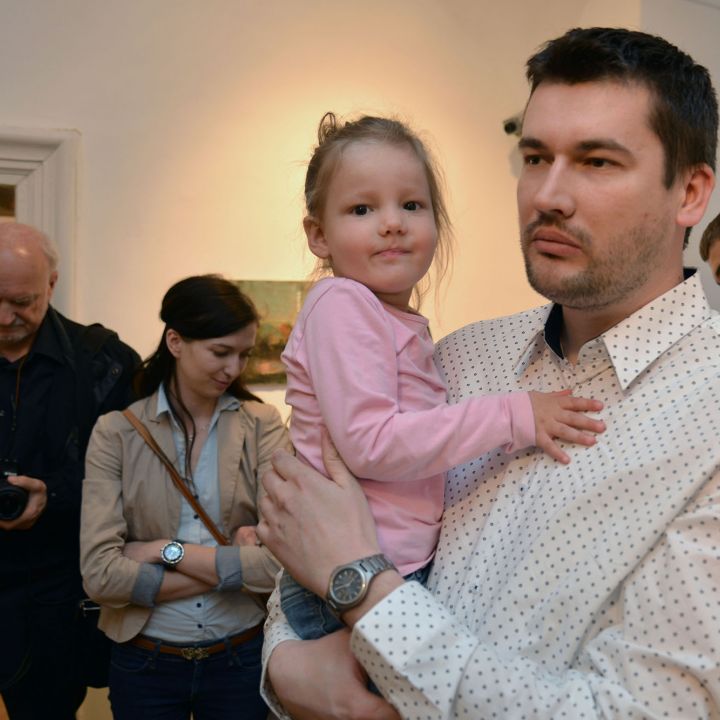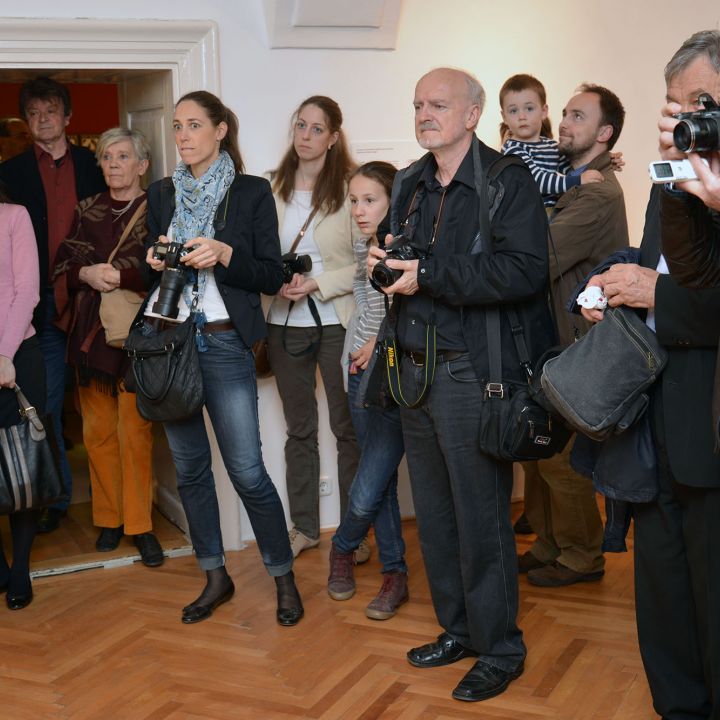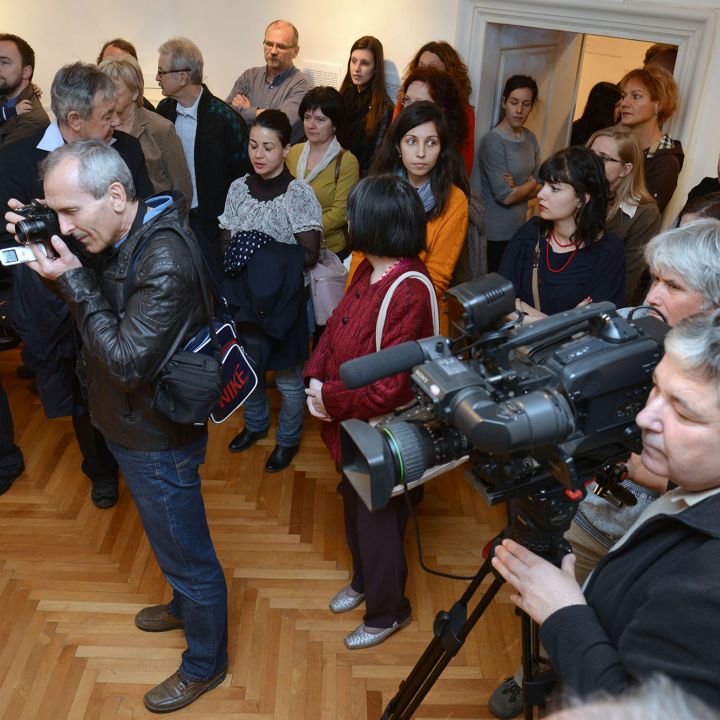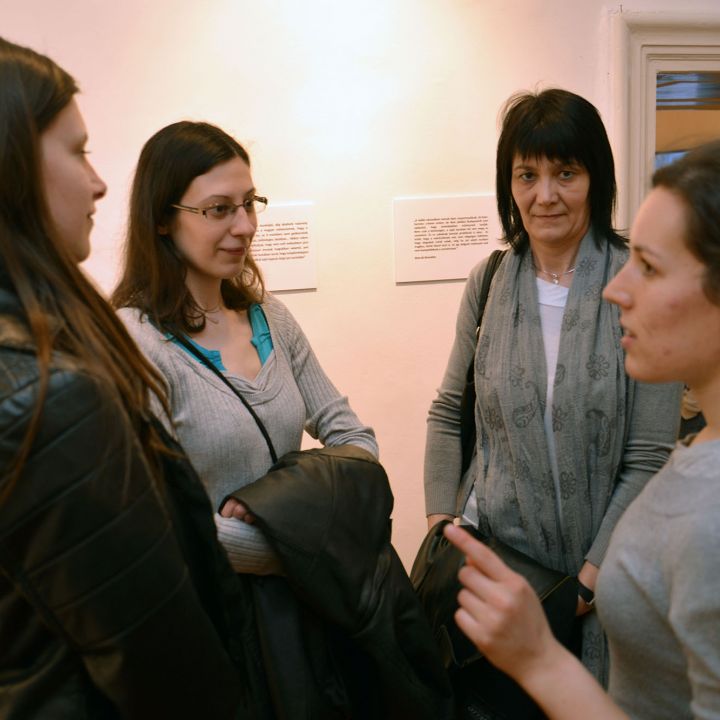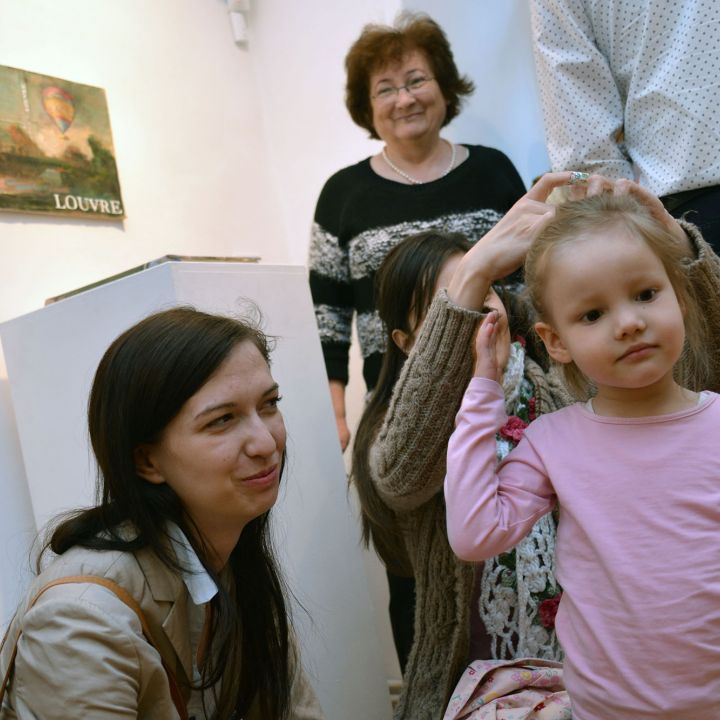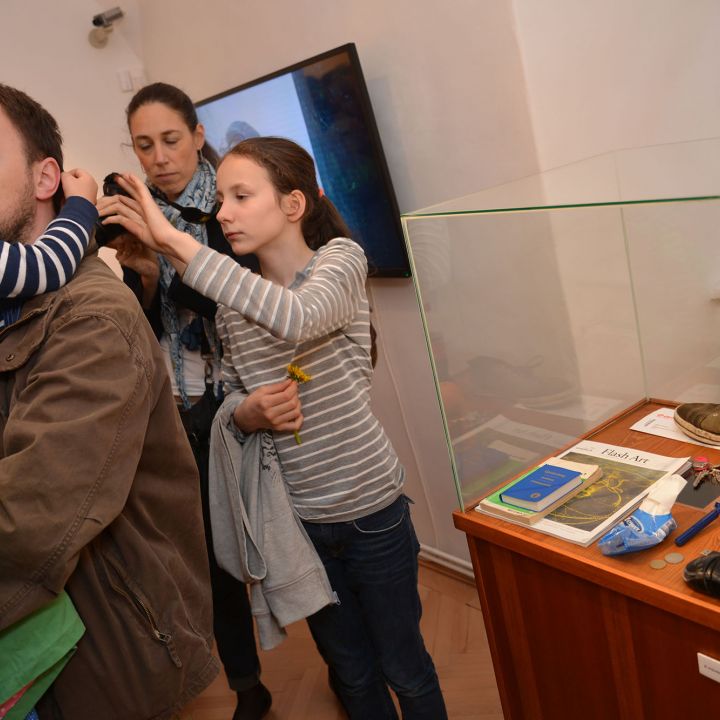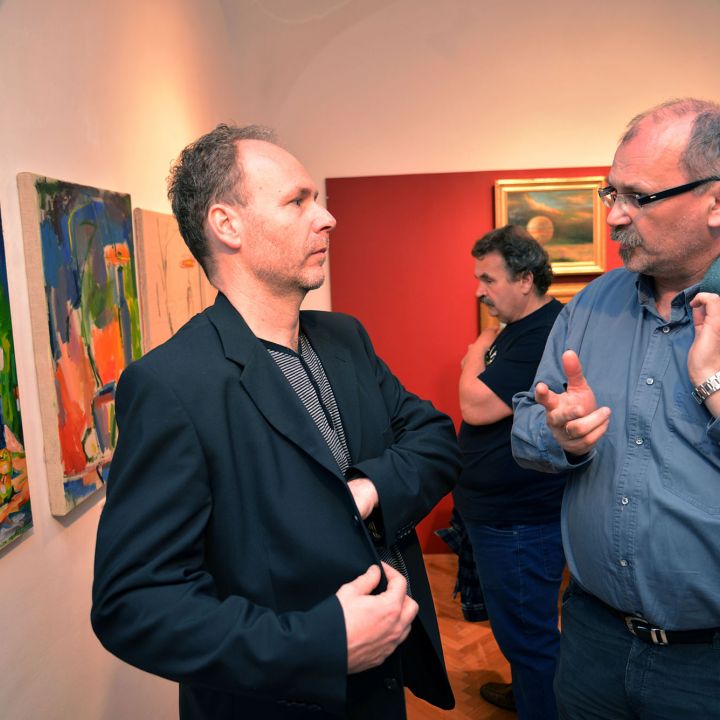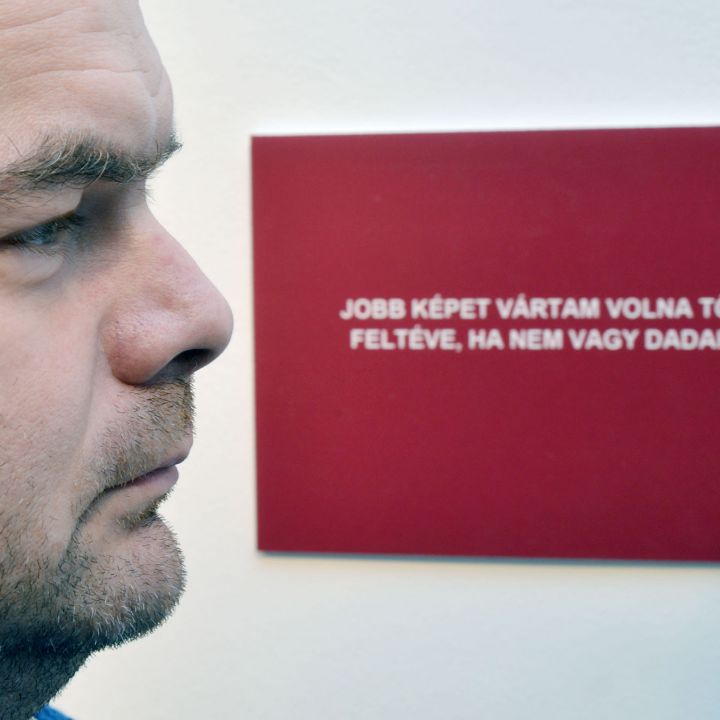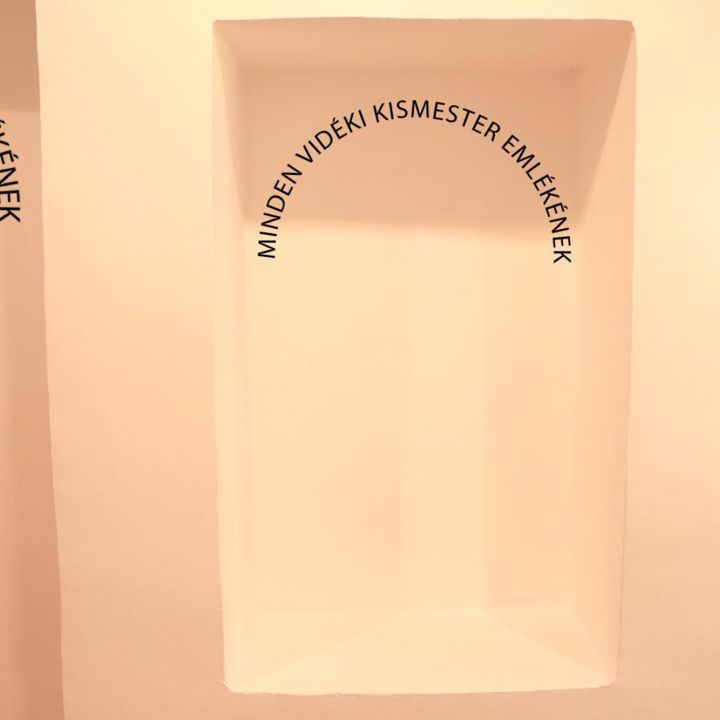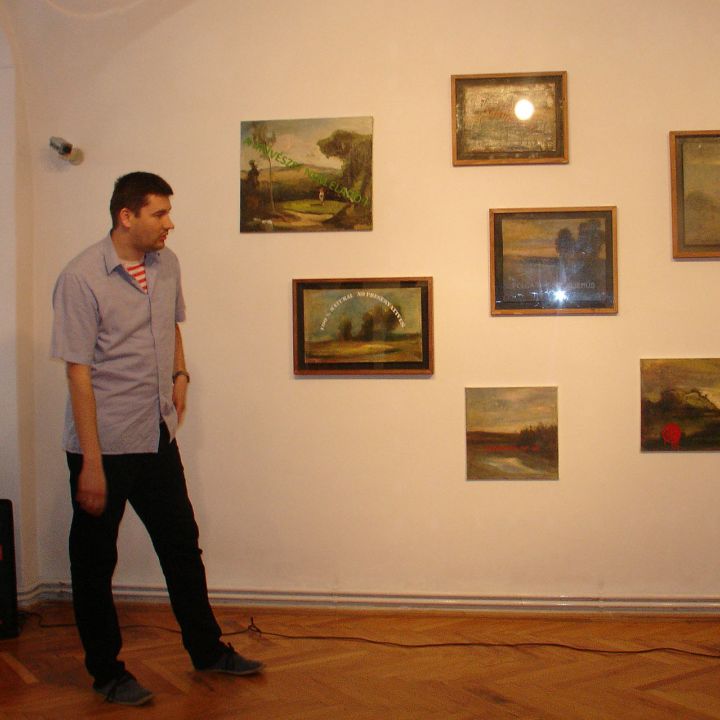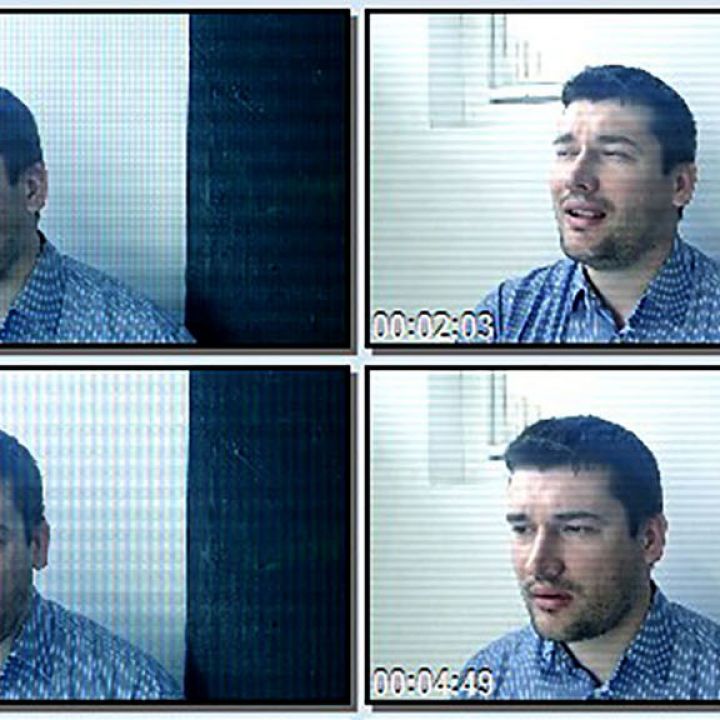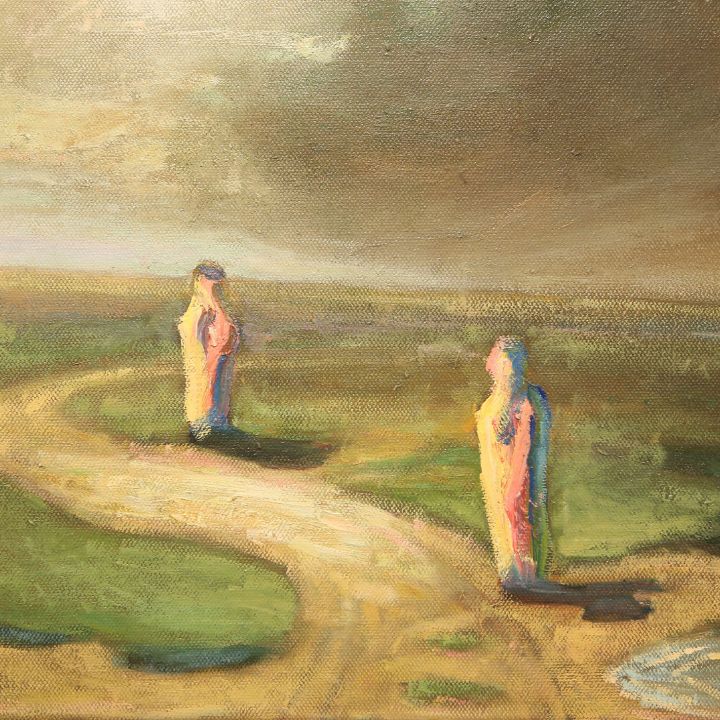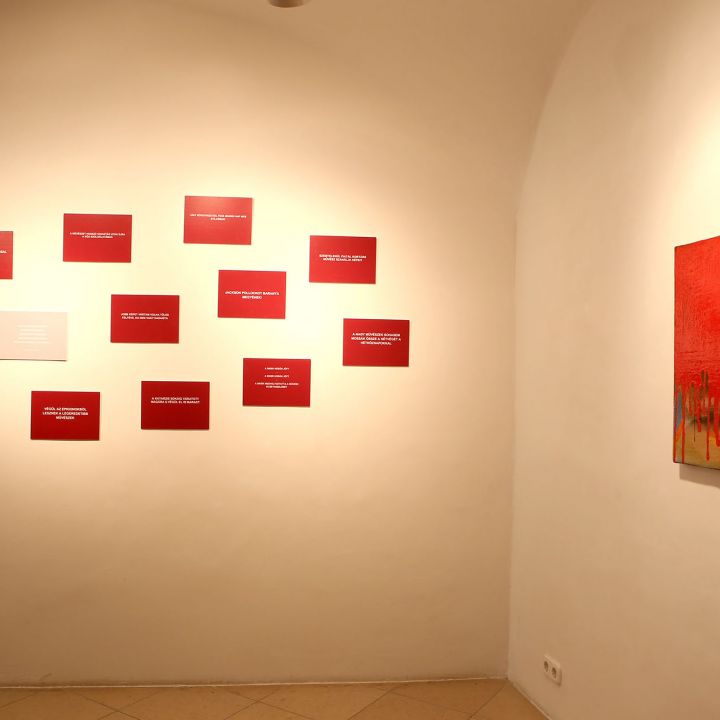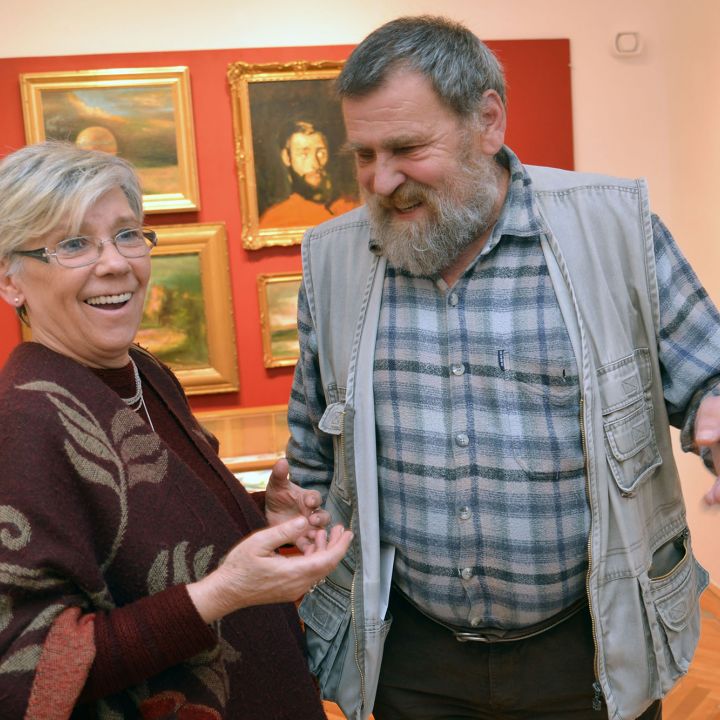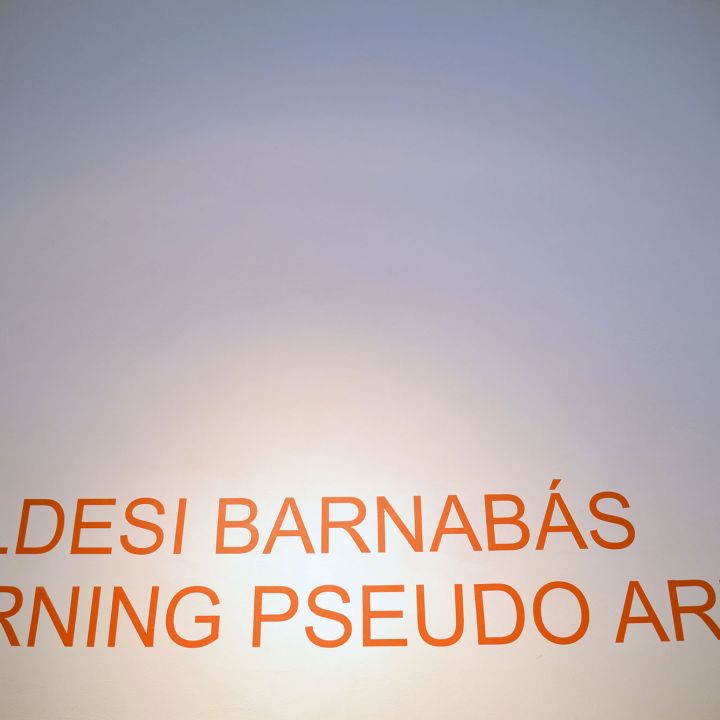"I am a poet - why should I care about poetry itself?" - the poet wrote in Ars poetica in 1937. Here is a young painter in the Bakony forest in the decade of the 21st century, who is interested not only in painting, but also in the essence of painting, in the self-reflection of art, in the doubt that the work and its creator unwittingly create.
Ladies and Gentlemen, who this painter is, who is sharing his lived-through professional scepticism in several batches here is obviously for you to piece together from the output of these rooms, I am just a commentator. I believe that the question of the centre-periphery relationship is an important issue in our contemporary culture. Barnabas Földesi also builds on this exciting dichotomy: he lives on the periphery, because he is not in (one of) the capital cities, but in a small centre in the heart of a beautiful natural area with a long history. As he says, he has long been interested in peripheral phenomena outside the canon of painting, while consciously and instinctively, consistently building his own inner, autonomous centre. He is suspicious of and contests, also because of his Christian convictions, the role of art as omnipotent and pathetic, but his works despite their chamber music dimensions are fugues and symphonies with a universal message.
Barnabas transcends the now dusty device of bourgeois embarrassment, he is not the scandal-mongering Marcel Duchamp, because he is pinging a moustache for his own Mona Lisa when he overwrites his own landscapes. He is not so much funny or provocative as ironic, philosophical, reflective. But first let us look at the empty, if you like, plain, primitive, unproblematic landscapes painted by Barnabás Földesi! First of all, let us not forget that the plein air painters, the Barbizon painters, too fled from academic salon painting to the "open air", to nature, to landscape, to free inspiration.
It is also in Ars poetica that Attila József later wrote, somewhat bittersweetly, that "the spring is beautiful - to bathe in it!" At the same time the landscape has for centuries been an expression of deep content and soaring desires and thoughts, and heroic forces, a sense of freedom, openness and introversion can all be heard in it, can come through its atmosphere. In Földesi, despite the size of a few palms these sounds and resonances strike and resound monumentally. And they are very well painted. The painter's paintings, which he calls "abstracts" are obviously to me landscapes in the same way as the ones I have just mentioned, only these are interior (inner) landscapes. But they are more than that: they are experimental associations of colour and tone, instinctively constructed layers of imagery. At the same time they are reverse academicism, consciously striving for image spoiling (not destruction), for the emotional and almost uncontrollable effects of colour contrasts. Stations of colour-dynamic research, similar to that carried out for decades by one of Barnabas's masters, the Kossuth Prize-winning Ilona Keserü.
In his textual images Barnabás Földesi evokes a critical school while remaining on the borderline of plausibility and authenticity. The artist, as Barnabás says, is most often forced into the role of a helpless puppet or illustration of a theory in such post-analyses. Through his written, overwritten work he insecures the observer of the landscape, creates and opens a "safety valve" that releases the psychological burden of the creative sphere. It is not only Barnabas' view that this is so, but it is almost obvious that in our time the theoretician-curator-critic has almost as much right to shape the artistic canon as the artist himself. Although these expectations and processes were in place somewhat earlier, before the age of Romanticism and liberalism, they are even more so in our globalised and media-driven world. I recently read that climate change is also increasing aggression (too) on our planet, it almost directly follows that our cultural-artistic climate and civilisation is also being heated by the (stupid) heat of virtuality and media. One of the possible creative attitudes towards this is not only the conscious exclusion, the specific valorisation of the periphery, but also the question of the authenticity of the image - warning! - pseudo art...
One of the old, peculiar features of art also brought into vogue by Romanticism is the observation not only of space but also of time from a distance, even beyond time. Memoirs, fragments of letters, historical works of fiction and works intended specifically for posterity are the products of this long-sentimental and serious endeavour. Meanwhile, the young and vital artist's own memorial exhibition is a quoted, critical, self-ironic manifestation of a false romantic reverie. Once again, a peculiarly suspicious view of the immanent artist-being from the other side... The exhibition is now open, thank you for your attention, but I have brought something for the memorial room, because 'Bakony is also my Paris' and the artist who commemorates himself deserves the happy immanence, the elixir of the mundane / Bakoños Calvados."
Imre Tolnay


